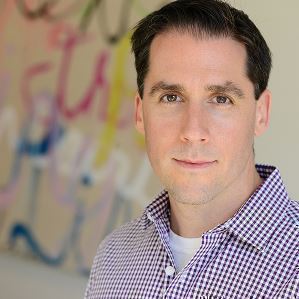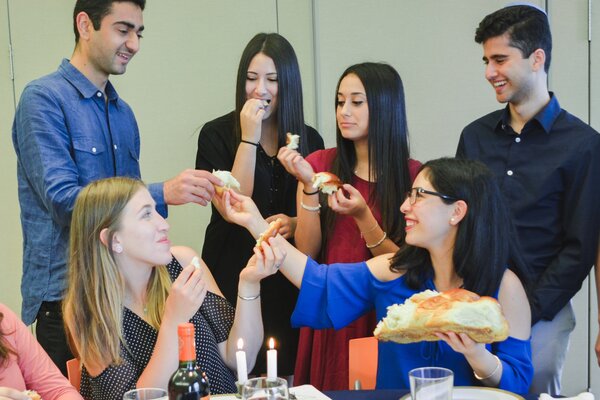Nearly every Friday night, I experience the same internal conflict at our Hillel’s Shabbat meals.
I smile as I watch my staff engage hundreds of students in lively and meaningful Jewish conversations. And then I look at the tables: nearly 1,000 pieces of plastic tableware. Thimble-sized Kiddush cups, plates, forks, knives, spoons, all destined to outlive my great-great-grandchildren.
We considered reusable dinnerware, but couldn’t find a cleaning crew willing to work the late-night shift. I could assign my student-facing staff or student leaders to the task, but I really want them focused on our core mission of building the Jewish future. How does environmental stewardship fit in when confronted with budgetary and programmatic obstacles?
With so much to be concerned about in our world, we, as leaders of non-profits and Jewish institutions, are constantly trying to resolve these difficult questions. With so many valid concerns, which do we choose to address, and which are better handled by other organizations?
To be sure, we all need to focus on our organizations’ unique missions. And I believe we also must also add addressing the environment to our institutional and familial priority lists — for three key reasons:
- Our constituents are asking us to address our energy consumption, carbon footprint, plastic usage, lack of composting, meat consumption, and world travel. In recent years, concern about humanity’s future has become one of our students’ top anxieties. What will their world look like? Will the California wildfires continue to rage? Will Florida succumb to the sea? Will Israel go to war over water resources?
- Without a sustainable planet, there is no Jewish future. For me, that means the environment is actually part of Hillel’s mission. The coming centuries could bring unthinkable climate disasters. Storms, plagues, forced migration, death: Jews never fare well in such situations. And scientists forecast Israel and other Jewish population hubs will suffer intense losses as temperatures rise.
- With nearly 8 billion humans crushing the only environment capable of supporting us, it will take collective action to stop this collective destruction. Most of us lead groups in affluent nations, which bear disproportionate responsibility for the damage. At the same time, many of us also have power and influence to make change through advocacy, education, changes in our own consumption patterns, and electing responsible governmental leadership.
Caring for our only planet is a nearly universal Jewish value across denominations, whether we are motivated by Jewish law or social concerns. This is one area that aligns with nearly all of our nearly all of our approaches to Jewish life.
Yes, we need to continue to focus on our primary concerns: assimilation, day-school tuition, scholarly research, BDS, antisemitism and myriad others. And yes, we can address those while simultaneously doing the work of ensuring humanity’s – and the Jewish people’s – future.
Jews are remarkably resilient because we cling to hope and make difficult decisions for the sake of our descendants. We plant fruit trees for the next generation. We build endowments. We take action. And we pull back from it all for Shabbat and holidays. We have seeded ideas that billions of people worldwide have adopted, and the Jewish community and Israel can lead on climate issues as well.
In some communities, it will take work just to remind our members to care. Others have donors who are already eager to fund LED lighting, HVAC upgrades, recycling programs, meatless meals, and compostable or washable silverware.
A green committee can gently audit your institution and identify simple, inexpensive changes that make a difference. At UCLA Hillel, our Green Team recommended upgrading our HVAC system, installing solar panels, converting to LED lighting, implementing recycling, serving less meat, and using compostable disposables. We’re progressing in each of these areas.
While we can make a difference, the experts acknowledge that governments will have the greatest impact on earth’s future. While I rarely delve into politics, our future may hinge on electing scientifically literate leaders. I’ll let you figure out how to talk with your constituents about that one.
Our tradition makes clear that humans are responsible for what happens to God’s creation. We have the free will to choose. Let’s choose life, for us, our children, and the next 3,000 years of Jewish history.

Photos provided by the author.
Get To Know The Author
WGF/DS Alum Rabbi Aaron Lerner (Class 22) is the Executive Director and The Rosalinde and Arthur Gilbert Foundation Chair at Hillel at UCLA.

